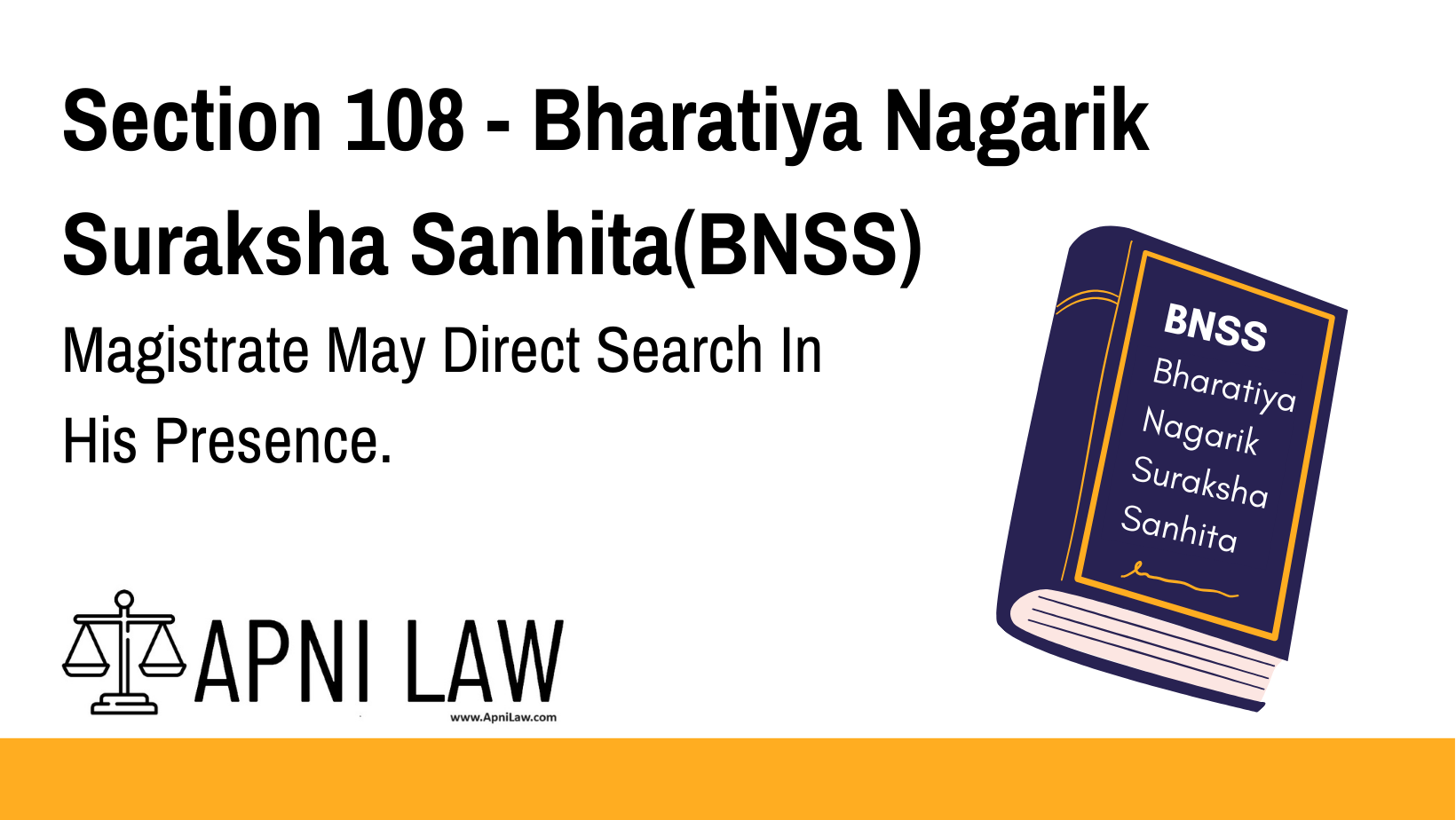Code:
108.
Any Magistrate may direct a search to be made in his presence of any place for the search of which he is competent to issue a search-warrant.
Explanation
Section 108 BNSS empowers a Magistrate to direct a search to be made in his presence for a place that he is authorized to issue a search warrant for. This provision ensures that the Magistrate can supervise the search procedure directly, maintaining oversight and ensuring the legal process is followed appropriately. This provision is significant because it emphasizes judicial authority and accountability during searches, preventing potential misuse of power by law enforcement.
Key Points:
- Magistrate’s Authority: The Magistrate has the authority to direct a search in his presence.
- Search-Warrant Competency: The Magistrate must be competent to issue a search warrant for the place in question.
- Direct Supervision: The search is conducted under the direct supervision of the Magistrate.
Illustration
Example 1: Magistrate Directing a Search
A Magistrate receives information that illegal weapons are stored in a warehouse. The Magistrate, who is authorized to issue search warrants for such premises, decides to supervise the search himself. He directs law enforcement officers to conduct the search in his presence to ensure that all legal procedures are followed.
Common Questions and Answers
1. Does a Magistrate need to be present for all searches?
- Answer: No, only when the Magistrate directs the search and is competent to issue the search warrant for that particular place, does he need to be present.
2. Can a Magistrate conduct a search independently?
- Answer: No, the Magistrate can only direct the search to be made in his presence, but the actual search is conducted by law enforcement officers.
Conclusion
Section 108 BNSS reinforces the importance of judicial supervision in search operations. By allowing a Magistrate to directly supervise searches in his presence, it ensures that the process is transparent, lawful, and accountable.










